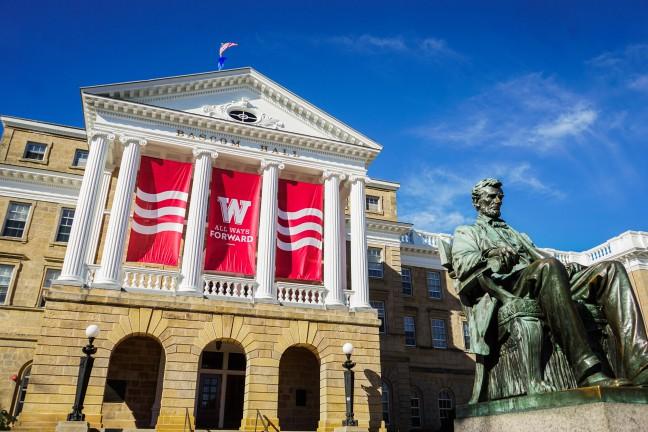Following University of Wisconsin Chancellor Rebecca Blank’s call for ideas to improve the campus racial climate, more than 100 members of the campus community submitted proposals. A review committee set to evaluate the proposals met on April 25 for the first time.
These proposals, submitted by students, faculty, staff and other members of the campus community, are innovative ideas or action steps to systematically raise the standards of behavior across UW and make sure everyone feels welcomed, according to the campus climate website.
The review committee, chaired by Everett Mitchell, UW Community Relations director, assembled a mixture of 15 members from shared governance groups, appointed faculty, staff and students, Mitchell said. Since this is an issue that concerns the whole campus community, it is important that review committee members come from a broad spectrum, he said.
The proposals feature a great variety of ideas, assembling the wisdom of a wide range of actors on campus, Mitchell said.
“Some of them have been ideas of ways which the campus climate can be adjusted,” Mitchell said. “There have also been straight proposals of action steps that can be taken within [specific] programs, to ensure the campus climate remains both diverse and safe for various groups on campus.”
In fact, university leaders like Blank have already made efforts to change the status quo of campus racial climate by agreeing to adopt cultural competency training designed for the school administration. The training is supposed to help the administration reflect on their actions and unconscious biases, Associated Students of Madison Chair Madison Laning said.
Though Laning did not submit proposals herself, she wrote an open letter to support one of them: Seeking Educational Equity and Diversity, or SEED, is a social justice course where students share and learn from their own and others’ life experiences as well as discuss issues pervasive in the society.
SEED is a national program that help students explore their own identities and build an inclusive, equitable environment, according to the course overview. Many faculty and graduate students across campus also shared their support for SEED and they are proposing to expand the effort to a lot of other schools and colleges, Laning said.
Laning also noted a program that brings first-generation college students together with alumni with similar backgrounds, to enhance the experience of these students. She said she believes calling for these proposals is on the way to making a difference to UW’s campus climate.
“I think it’s a good step in the right direction,” Laning said. “I think it’s important that we are devoting more resources to expand it and I like that there was a lot of input from students, staff and faculty to put together these proposals. It will be interesting to see how many of them are actually going to be implemented.”
The meeting on April 25 was only an initial step into the effort, Mitchell said. The purpose of the meeting was to introduce all committee members, pull together the evaluation rubrics and set a tentative timeline for next steps.
The committee members are still trying to define more specific language for course rubrics, which they didn’t finish crafting during the meeting, but should be finalized soon, Mitchell said.
In the evaluation process, Laning said it is also important to incorporate some of the proposals and keep them working together. She said the university needs to make sure it’s not creating multiple different proposals that are very separated around campus.
“I think it would be interesting to see how many of them focus on students, versus staff, faculty and administration and whether there will be any institutional level changes, besides just spending more money on more programs,” Laning said.
Mitchell said the committee plans to come up with a list of recommendations by mid-May to submit to the chancellor.
At that stage, Blank will determine which proposals among the hundreds submitted, once implemented, will have the greatest possibility to impact the campus climate, Mitchell said.
“[We will] recommend some of the proposals that have the greatest chance of being able to provide substance to conversations around campus climate,” Mitchell said.


